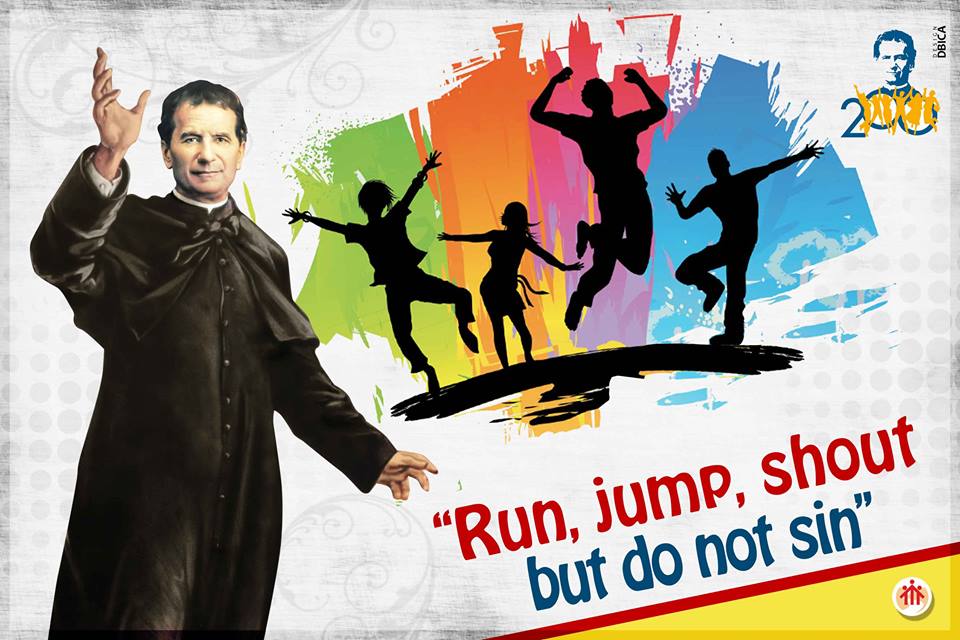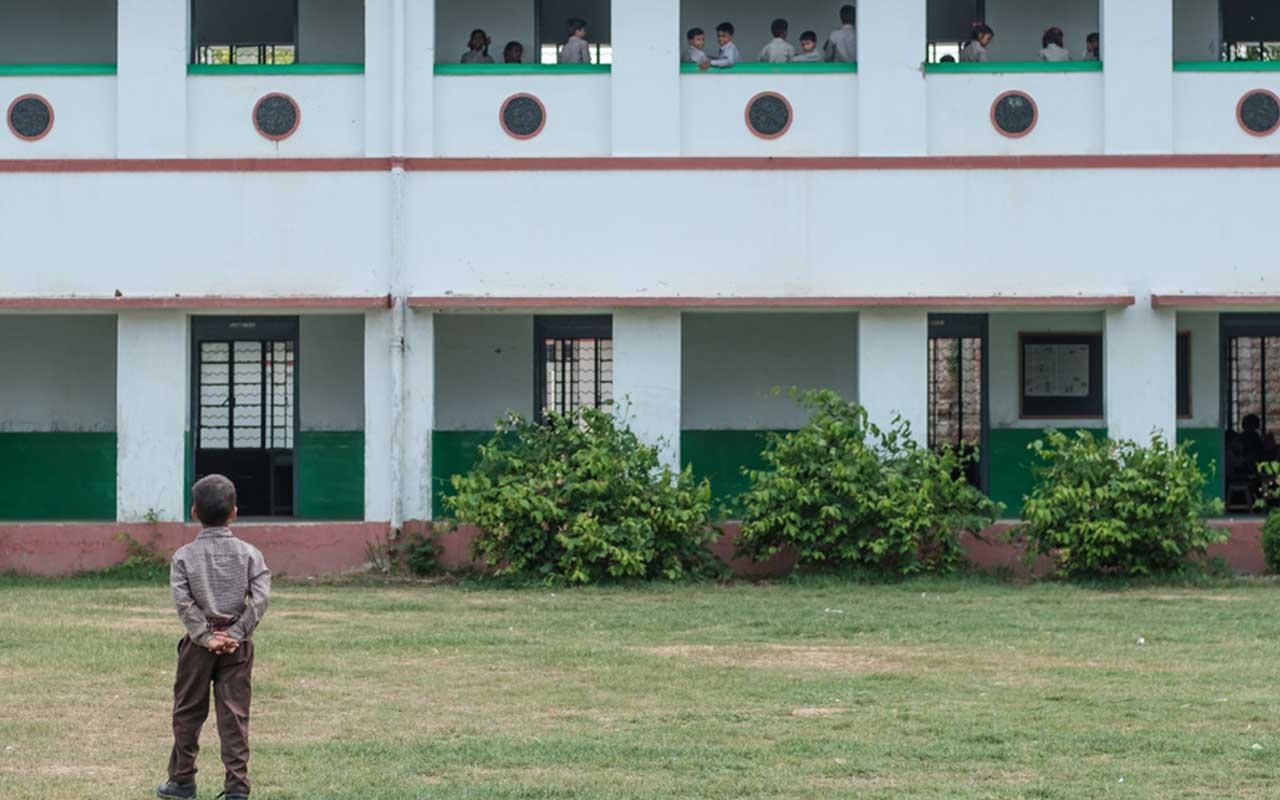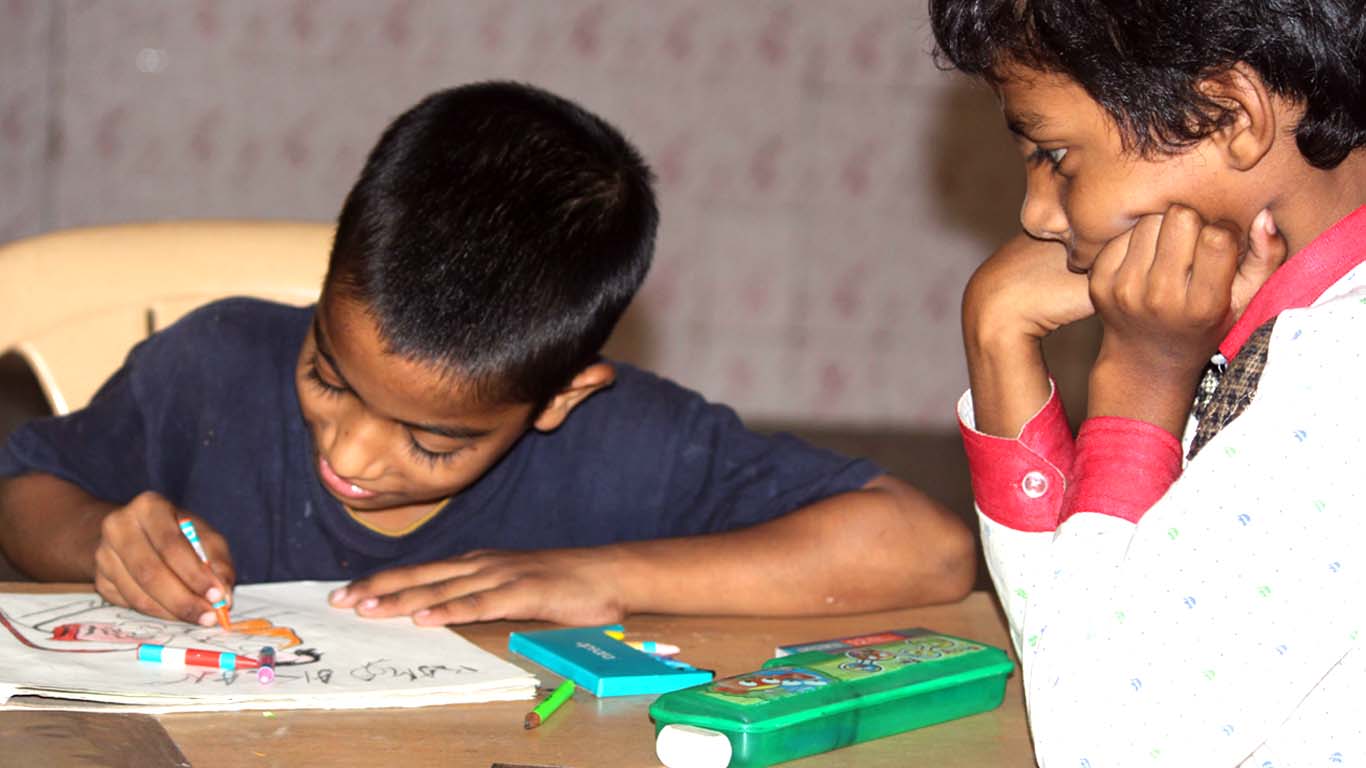
No corporal punishments
Don Bosco was completely against the idea of corporal punishments. He believed that when an youngster is afraid, he rarely learn anything. In fear, the youngster often acts in order to please the one he/she fears. In fear all that matters are how one performs in front of the educator than what one thinks about the educator and what they teach us. The pupil becomes dishonest and only learns the art of wearing a mask of honesty in front of his/her educator. Don Bosco believed that the fear of punishment makes the youngster dependent on others. The youngster is afraid of making mistakes and thus loses confidence in oneself. He/she looks to others for solutions to his/her problems. They lack self-confidence and self-appreciation and come to believe that they are incapable of success.
Loving Kindness
Don Bosco’s method of education is based mostly on the idea of good relationship between the educator and the educand. For him there is no learning without a relationship. The more loving and trusting the relationship is, the greater is the confidence of the pupil with respect to what is learned. A student performs better when he/she loves the teacher. It is difficult for them to forget what they have learned; especially the lessons of life, when they learn it from a person they respect and love. The time spent with such an educator becomes a lifelong experience. An educator of that caliber becomes a model, that the young want to imitate. Don Bosco’s maxims for such an educator are; “Love what the young love, that they may love what you love.” “Familiarity breeds affection. Affection breeds confidence”. “It is not enough to love; they must know that they are loved”. Loving kindness makes the educator to draw out the best in every educand.
The rapport that exists between a teacher and student makes the learning a joyful event. The learner is never afraid to make mistakes. In an ambiance of love the learner is never afraid to make any mistakes. He is willing to take risks and each failure becomes a step towards success. This increases the self-confidence of the student and increases creativity.
The teacher must have the qualities of head and heart in order to be a good educator according to the mind of Don Bosco. The educator must listen to the young in order to understand them and not to find fault with them. They should not be judgmental. The young need attention. The availability of the educator to the needs of the young, is another important quality of an educator. He must be physically present with them. An educator should be available to them beyond the four walls of the class room. Learning for life takes places not always in classrooms but in places like playgrounds, theatre, music classes, picnics, excursions and other time of recreations and extracurricular activities.
Reason
Reason is an inevitable element in the education of the young in Don Bosco’s method of education. It is indispensable because it safeguards a relationship based on love to wane into mere sappiness. It checks out anything turning into extremes or exaggerations. The educator has to encounter one’s students with a disposition of respect that help learning. The rules that an educator forms must be based on common sense. There should not be too many rules. The life of the young becomes easy and enjoyable with as less regulations as possible. The rules must be simple and clear to the mind of the young. It must be explained orally and in writing. The conviction that following a certain rule brings in benefits to their life, makes it easy for the young to follow the rule. The youth are impulsive so they turn to forget the rules. So it is the duty of the teacher to timely remind them of the rules without irritating them.
The young must understand the fact that all the rules are not of same value. Therefore, what is more important have to be followed to the letter and the educator must allow a few concessions to the not so important ones. The educator must get the opinion of the students when formulating certain rules or making the students themselves to formulate some. This will make them to follow the rules without fail. The educator must evaluate the rules timely as to perceive the efficacy of those rules. Those rules that do not have value due to the change of time need to be removed. For Don Bosco an educator must place himself into the situation of the educand and see if the formulation of a rule is actually helpful.
Religion
As a Catholic priest for Don Bosco, religion and belief in God played an important role in the education of the young. Though he encouraged expression of one’s talents and gifts in a joyful environment, he demanded silence when it was time for prayer. Faith is an aspect that he believed will help a person in moments of difficulties. He taught the students to pray and enter into a loving relationship with God. He placed a lot of importance to afterlife. He was a realist. He taught the students to live keeping in mind their grave and as a Christian he imparted an education skilling them to live by eyeing heaven. This made them to take wise decisions about their life and live with a sense of hope. For Don Bosco the best way to serve God is to fulfill one’s duty to the best of one’s ability. He also reminded the students to be happy in doing one’s duty which included every aspect of their life. Religion also played a big role in making the young service minded. He believed in helping the underprivileged as a means to serve God. He instilled in his students that same mind.
Forgiveness is a quality that is quite difficult for a young person. They are very passionate about what they feel and believe. This creates a lot of misunderstanding and end up in conflicts. The power of religion makes the young to forgive and live in peace without yielding to revenge and grudges. This is important to create an ambiance conducive for education.
Presence of the Educator and Personal Relationship with the Educand
The success of Don Bosco in the practice of the preventive system of education was that he made the system workable for the youth of his time. He was able to utilize it for a group of youngsters who had nowhere to go and nobody to look after. He localized the practice of this system according to the need of the time. For him the joyful expression of a youngster is in the place where he is and not where he was and nor where he will be. So the presence of the educator at the places of learning of the student, is an important aspect in the educational methodology of Don Bosco. The educator has to be fully present with the student or the student has to be in the eyes of the teacher during learning. This is a great responsibility and it is highly demanding on the educator. The educator should not see it as a burden, but a privilege and an opportunity for the holistic growth of the pupil.
The presence of the educator must be a welcoming presence. An educator must be pro-active and take that first step in making the pupil feel at home. They must be hospitable and their approach must be homely. The presence of the educator must become a motivating factor for the youngster. His presence should encourage the student to perform better. The presence of the teachers infuses in them a thirst for knowledge through the tactful use of queries, puzzles, quizzes, debates, excursions, etc.
The rapport of the educator plays a major role in his presence. The personal love and care, that he shows to each student especially to the most deserving ones is the special characteristics of this method. Each student is called by name, they feel known, loved, respected and accepted. This is all the more essential with those who are poor, weak, physically and mentally challenged or socially marginalized. It is a professional approach which is based on high moral values. The respect that the educator gives to each student makes them to respect and love what the educator loves. Though the educator is asked to love what the young love, they are not expected to behave badly as to lose their self-dignity as a teacher.
Expectations from the Educator
This system of education places great expectations on the educator. Its demands are high. The educational ambiance become so complex at times that they run the risk of distancing itself from the young people. In order to avoid such situations, the educator is expected to be present physically in places where the youngsters gather, for example; in class rooms, playgrounds etc. The educator is expected to be with the students and participate in their recreational activities during breaks. This will make the teachers to leave the comfort of the staff rooms and be among the students as friendly guides and animators. This will also give the opportunity for the teachers to get to know their students better. The dignity and modesty shown by the teacher during recreations will in the long run, earn for the teacher the respect and appreciation of the students. The educator must be matured enough to be available to offer corrections and suggestions without hurting the sentiments of the students and must be discrete in maintaining secrecy about their life and behavior.
Though the educator is far above the age of the youngsters, one must learn to enjoy their company. The style of relating to the students must be friendly and non-judgmental which allows them to express themselves freely and spontaneously. The personal and emotional issues of the educator should not become a hindrance to this. The educator must show that he/she is happy to be in the midst of the youth and to enjoy their company. The informality of the educator in the midst of youth should not distract him from his duty to be vigilant. A keen observation skill is a necessary aspect for the educator who practices this system of education. The educator must be watchful of the weak, students who remain aloof, mischievous pupils and especially the unpredictable ones. He must be a lifelong learner. The behavior pattern of the students change from time to time as the influence of the external factors on students change according to the time and place
-
BONN Child Sponsorship – Itarhi, Bihar
BOSCO Delhi through BONN Child Sponsorship, is rea..

-
BONN Child Sponsorship – Jokbahla, Chhattisgarh
BOSCO Delhi through different sponsorship programs..

-
FRATELLI DIMENTICATI ONLUS Educational Sponsorship
FONDAZIONE FRATELLI DIMENTICATI ONLUS is one of th..

